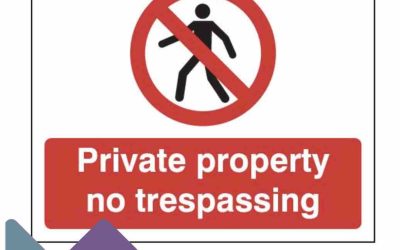The Access to Neighbouring Land Act 1992(”the Act”) allows a landowner to apply for an ‘Access Order’ at Court, to gain access to neighbour’s land where the works are required for the preservation of the landowner’s land need to carry out, if the owner of the neighbouring land does not grant the access, or the preservation works would be significantly more difficult without the access.
However, should the neighbours suffer disturbance of the landowner’s use of the land, or anyone in occupation suffer unreasonable hardship, the Court can refuse to grant the Access order.
If the Court grants the Access Order, it is entitled to define the conditions for the duration of the access period, the working hours, what works are permitted, and the compensation that needs to be paid to the neighbour.
What are considered as preservation works?
Works that are considered as basic preservation works in the Act include the maintenance, repair or renewal of any part of a building or the structure on the landowner’s land, the clearance, repair or renewal of any drain, sewer, pipe or cable on the landowner’s land, the filling or clearance of any ditch on the landowner’s site and so on.
What is an Access Order not right for?
Another situation in which an Access Order is required is after a landowner has obtained the planning permission for a new development project but cannot carry out certain tasks without appropriate access to the neighbouring land, for example, the building of a new extension.
However, work for development projects or improvements is not considered as basic preservation works.
The Act is not appropriate for new development projects, erection of scaffolding, the digging of foundations or even solar panel installation on landowner’s existing property’s roof.
What to do if the Access Order application is refused by Court?
The only other option for the landowner, in this case, is to agree on the access to the neighbouring land with the neighbour. The agreement, which can be in the form of a letter, should state the purpose of the access, access time, any terms negotiated between the two parties.
For the negotiation, the landowner has to understand the fact that the neighbour is in a strong negotiation position and can request a ransom payment.
If the compensation the neighbour requests is too unreasonable, or the neighbour is not willing to cooperate, then the landowner has no choice but modifies the plan so that the access will be no longer needed.
Applications of Access Order to Court are often not made for two reasons: owners are often not aware of their rights under the Access to Neighbouring Land Act, or for the ones who understand the Act, the fact that a landowner is willing to make an application is enough of a threat, then for the purpose of community harmony or having less hassle, appropriate access will usually be granted the neighbours.
Please contact us if you have any further questions on access. Access can become a tricky matter at the best of times so be sure to have all of your ducks in a row should you wish to exercise your access rights.
If you would like to discuss Access Licences with our team of Surveyors here at Stokemont, give us a call or get in touch here and we will be more than happy to assist you.




